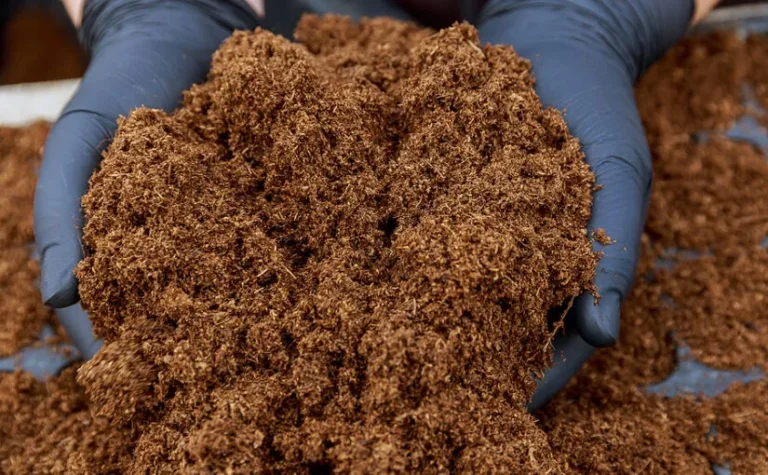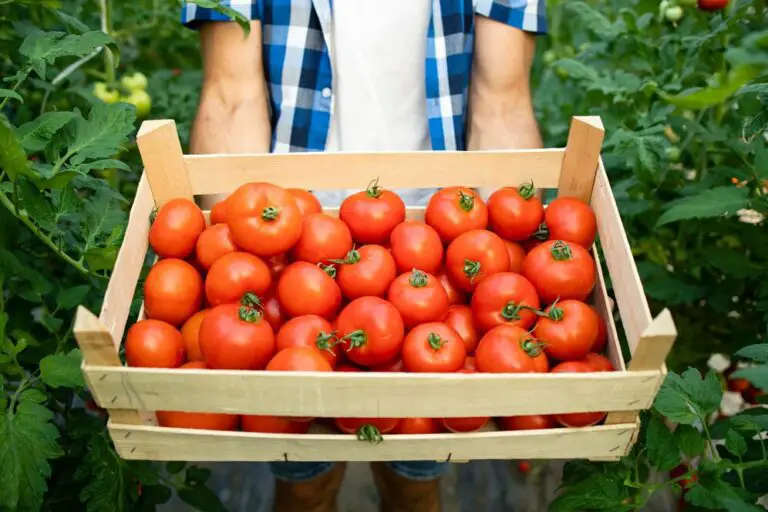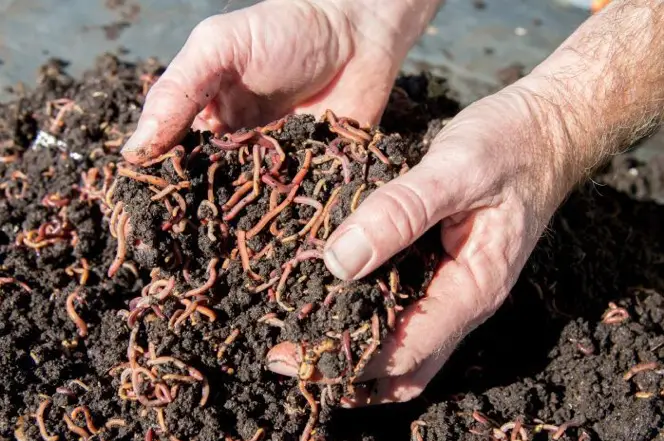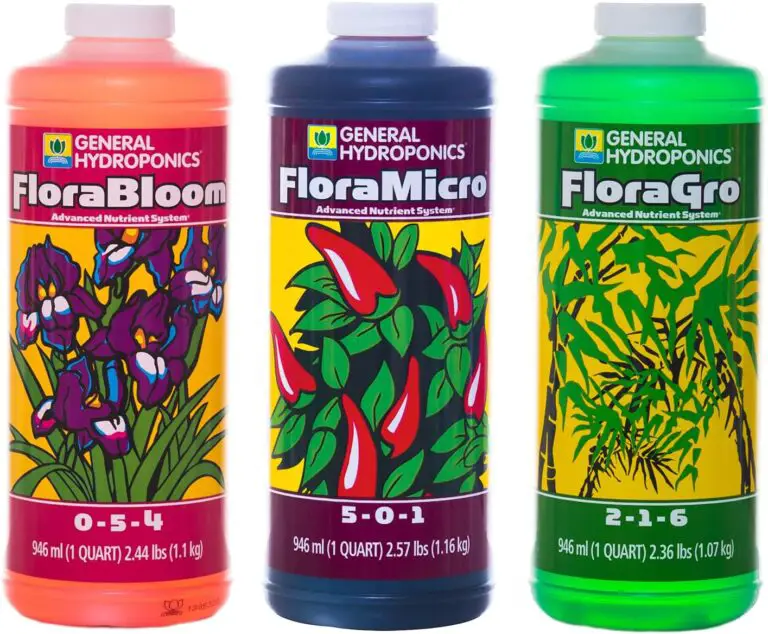Kelp Meal for Plants: What It Is, How It Works, and How to Use It for Your Plants
Table of Contents
The Benefits of Using Organic Fertilizers for Plant Growth
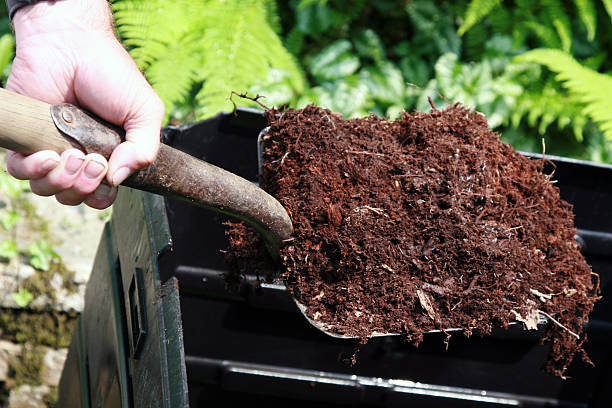
Organic fertilizers have gained popularity in recent years due to their numerous benefits in promoting plant growth and overall plant health. Unlike synthetic fertilizers, organic fertilizers are derived from natural sources and contain essential nutrients in a form that is readily available to plants. This not only improves nutrient absorption but also enhances soil fertility in the long term.
One of the key advantages of using organic fertilizers is their ability to improve soil structure. Organic fertilizers, such as compost or manure, help improve soil’s ability to retain moisture and promote aeration. This creates a favorable environment for root growth, leading to healthier and stronger plants. Additionally, organic fertilizers facilitate the growth of beneficial microorganisms in the soil, which play a vital role in breaking down organic matter and releasing nutrients for plants to absorb.
Another benefit of organic fertilizers is the reduced risk of nutrient leaching and environmental pollution. Unlike synthetic fertilizers, which often contain high concentrations of nutrients that can be easily washed away, organic fertilizers release nutrients slowly over time, reducing the chances of excess runoff. This not only prevents water pollution but also ensures a more sustainable and eco-friendly approach to plant nutrition.
Overall, the use of organic fertilizers provides numerous benefits for plant growth, soil health, and environmental sustainability. By incorporating these natural fertilizers into your gardening practices, you can promote the long-term health and productivity of your plants while minimizing negative impacts on the environment.
Understanding the Composition and Nutritional Value of Kelp Meal
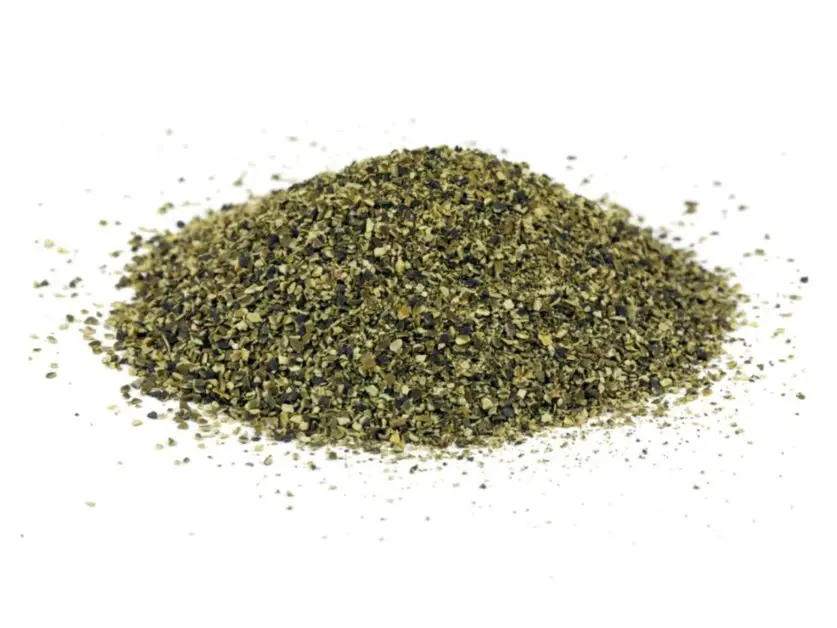
Kelp meal, derived from dried and ground kelp seaweed, is a natural and organic fertilizer that has gained much attention in the gardening and agriculture community. Understanding its composition and nutritional value is key to harnessing its potential as a plant supplement. Kelp meal is rich in essential nutrients such as nitrogen, phosphorus, and potassium, commonly known as NPK. These macronutrients play vital roles in supporting plant growth and development. In addition, kelp meal is also a valuable source of micronutrients like iron, magnesium, zinc, and calcium, which are essential for overall plant health.
Aside from its nutrient content, kelp meal also contains natural growth hormones known as gibberellins, auxins, and cytokinins. These hormones are responsible for regulating various physiological processes in plants, including cell division, elongation, and flowering. The presence of these hormones in kelp meal makes it an excellent option for stimulating root growth, enhancing seed germination, and promoting overall plant vigor. Additionally, kelp meal acts as a natural bio-stimulant, boosting the plant’s immune system and making it more resistant to various stresses such as drought, disease, and pest attacks.
Overall, understanding the composition and nutritional value of kelp meal is crucial for gardeners and farmers looking to improve plant health and growth in a sustainable and organic manner. By harnessing the rich nutrient profile and natural growth-promoting properties of kelp meal, gardeners can provide their plants with a balanced diet, supporting robust growth, improved stress tolerance, and enhanced overall plant health.
Unveiling the Role of Kelp Meal in Promoting Plant Health and Growth
Kelp meal, derived from brown seaweed, has long been recognized for its significant role in promoting the health and growth of plants. Due to its rich composition of nutrients and natural properties, kelp meal serves as a highly effective plant supplement. The benefits it provides extend beyond mere nutrient provision, as kelp meal also enhances soil fertility and promotes optimal nutrient availability for plants.
One key aspect of kelp meal’s role in promoting plant health is its ability to improve soil structure and nutrient retention. The organic matter found in kelp meal helps to enhance soil fertility, allowing plants to access essential nutrients more readily. Moreover, the presence of beneficial microorganisms within kelp meal aids in maintaining a healthy soil ecosystem, further supporting plant growth.
In addition to its impact on soil health, kelp meal positively influences root development and absorption. The naturally occurring hormones and growth stimulators present in kelp meal encourage strong and extensive root systems, enabling plants to better access water and nutrients in the soil. This ultimately leads to improved overall plant health and growth.
Furthermore, kelp meal has been found to enhance the tolerance of plants to various stressors, such as disease, extreme temperatures, and drought. The seaweed’s unique blend of vitamins, minerals, and amino acids strengthens the plant’s immune system, making it more resilient to external pressures. With increased stress tolerance, plants are better equipped to withstand unfavorable conditions and continue to thrive.
Overall, the role of kelp meal in promoting plant health and growth cannot be underestimated. From its soil-enhancing properties to its ability to fortify root systems and improve stress tolerance, kelp meal offers a holistic approach to plant nutrition and care. By incorporating kelp meal into their plant care routines, gardening enthusiasts can unlock the full potential of their plants and witness healthier, more vibrant growth.
Exploring the Natural Properties of Kelp Meal as a Plant Supplement
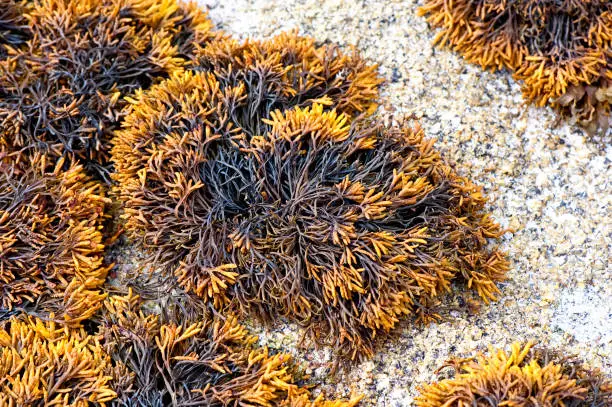
Kelp meal, derived from dried seaweed, is gaining popularity as a natural and effective plant supplement. Its natural properties make it an ideal choice for gardeners seeking to enhance the health and growth of their plants.
One of the key properties of kelp meal is its rich mineral content. Seaweeds, including kelp, are known to absorb a wide range of essential nutrients from the ocean. As a result, kelp meal is a concentrated source of minerals such as potassium, calcium, magnesium, and iron. These minerals play a crucial role in various plant processes, including photosynthesis, enzyme activation, and structural development. By incorporating kelp meal into the soil or the plant’s growing medium, gardeners can provide a natural boost of essential minerals, giving their plants the necessary foundation for robust growth.
How Kelp Meal Enhances Soil Fertility and Nutrient Availability
Kelp meal, derived from dried and ground seaweed, is a powerful natural resource that can significantly enhance soil fertility and nutrient availability. This organic fertilizer is rich in essential minerals such as nitrogen, phosphorus, and potassium, as well as trace elements like calcium, magnesium, and iron. When applied to the soil, kelp meal gradually releases these nutrients, providing a sustainable source of nourishment for plants.
One of the key ways in which kelp meal enhances soil fertility is by improving its structure. The high organic matter content in kelp meal helps to increase soil aggregation, allowing for better aeration and water infiltration. This, in turn, promotes the growth of beneficial microorganisms that contribute to nutrient cycling and breakdown of organic matter. Additionally, kelp meal’s unique composition stimulates the development of a diverse microbial community, further enriching the soil ecosystem and enhancing its nutrient-holding capacity. As a result, plants grown in kelp-amended soil not only have access to a wider range of essential nutrients but also benefit from improved overall soil health.
Here’s a detailed guide on how kelp meal enhances soil fertility and nutrient availability:
| How Kelp Meal Enhances Soil Fertility and Nutrient Availability | Explanation |
|---|---|
| 1. Rich in Nutrients | – Kelp meal is derived from dried seaweed and is naturally rich in essential nutrients such as nitrogen, phosphorus, potassium, calcium, magnesium, and trace minerals. |
| – When incorporated into soil, kelp meal releases these nutrients slowly, providing a continuous supply to plants over time. | |
| 2. Improves Soil Structure | – Kelp meal contains organic matter that helps improve soil structure by increasing soil porosity and water retention capacity. |
| – Enhanced soil structure promotes better root development and nutrient uptake by plants. | |
| 3. Stimulates Microbial Activity | – Kelp meal contains growth-promoting hormones, amino acids, and carbohydrates that stimulate beneficial microbial activity in the soil. |
| – Increased microbial activity enhances nutrient cycling, decomposition of organic matter, and nutrient mineralization, making nutrients more available to plants. | |
| 4. Boosts Plant Growth and Yield | – The combination of nutrients, growth-promoting compounds, and improved soil structure provided by kelp meal promotes vigorous plant growth and higher yields. |
| – Plants grown in soil amended with kelp meal often exhibit increased resistance to environmental stressors and diseases. | |
| 5. Enhances Nutrient Absorption | – Kelp meal contains natural chelating agents that help chelate or bind essential nutrients in the soil, making them more available for plant uptake. |
| – Improved nutrient absorption leads to healthier plants with better growth, color, and overall vigor. | |
| 6. Acts as a Soil Conditioner | – Kelp meal acts as a soil conditioner, improving soil texture, aeration, and moisture retention. |
| – Its ability to break down slowly over time provides long-term benefits to soil health and fertility. | |
| 7. Eco-Friendly and Sustainable | – Kelp meal is derived from sustainable and renewable marine sources, making it an environmentally friendly soil amendment option. |
| – Its use helps reduce the dependency on synthetic fertilizers and promotes eco-conscious gardening practices. |
Examining the Impact of Kelp Meal on Root Development and Absorption
Kelp meal has been widely recognized for its positive impact on root development and nutrient absorption in plants. When applied as a soil amendment or fertilizer, kelp meal introduces a plethora of essential minerals and trace elements that are crucial for root growth and overall plant health.
The high concentrations of naturally occurring growth hormones known as auxins found in kelp meal play a significant role in stimulating root growth. Auxins promote the formation of adventitious roots, which increase the surface area for nutrient uptake and water absorption. Moreover, studies have shown that kelp meal enhances the growth of lateral roots, resulting in a more extensive root system capable of exploring a larger volume of soil. This increased root mass increases the plant’s ability to source nutrients and water, leading to stronger and more resilient plants.
In addition to promoting root development, kelp meal also enhances nutrient absorption in plants. The presence of plant growth regulators in kelp meal facilitates the uptake and assimilation of essential nutrients, such as nitrogen, phosphorus, and potassium. These nutrients are vital for various physiological processes in plants, including photosynthesis, energy production, enzyme activity, and overall growth and development. By providing a nutrient-rich environment and improving nutrient uptake, kelp meal helps plants achieve their full potential, resulting in healthier and more productive gardens.
Harnessing the Power of Kelp Meal to Improve Plant Stress Tolerance
Harnessing the power of kelp meal can greatly enhance the tolerance of plants to various stressors. Whether it’s extreme temperatures, drought, disease, or pests, kelp meal has been proven to provide plants with the necessary tools to overcome these challenges and thrive in unfavorable conditions.
One of the key ways in which kelp meal improves plant stress tolerance is through its rich nutrient content. Kelp is packed with essential minerals, vitamins, and trace elements that are vital for plant health. These nutrients not only provide a direct boost to the plant’s overall well-being but also help strengthen its immune system, making it more resilient to stressors. Additionally, kelp meal contains natural growth regulators, such as cytokinins, which assist in regulating plant growth and development even when faced with adverse conditions.
Moreover, the unique composition of kelp meal stimulates the production of stress-related hormones within plants. These hormones help plants activate their defense mechanisms, enabling them to combat stress more effectively. By inducing the production of antioxidants, kelp meal aids in neutralizing harmful free radicals that are generated during stressful conditions. This protection against oxidative damage plays a crucial role in alleviating stress and fostering plant survival.
In conclusion, kelp meal offers a powerful solution for improving plant stress tolerance. Its nutrient richness, growth-regulating properties, and ability to stimulate stress-related hormones all contribute to a plant’s ability to withstand adverse conditions. By incorporating kelp meal into your plant care routine, you can provide your plants with the necessary support to thrive and overcome stressors, leading to healthier and more resilient vegetation.
The Environmental Benefits of Using Kelp Meal as a Sustainable Plant Nutrient
Kelp meal, derived from seaweed, has gained recognition as a sustainable plant nutrient with several environmental benefits. One of the key advantages of using kelp meal is its positive impact on soil health. When incorporated into the soil, kelp meal enriches it with a wide range of essential nutrients and minerals that plants require for optimal growth and development. This natural fertilizer not only enhances the fertility of the soil but also improves its overall structure, allowing for better water retention and aeration. The improved soil health translates into healthier and more resilient plants, reducing the need for synthetic fertilizers and their potential negative impacts on the environment.
In addition to its soil-enhancing properties, kelp meal is also known for its ability to promote sustainable farming practices. By using this organic alternative, gardeners and farmers can reduce their reliance on chemical-based fertilizers and pesticides, which often contribute to soil degradation and water pollution. Kelp meal serves as a natural solution that minimizes nutrient runoff and prevents the accumulation of harmful chemicals in the ecosystem. Its sustainable nature extends beyond its application in agriculture; kelp meal production involves minimal energy consumption and has a smaller carbon footprint compared to synthetic fertilizers. Incorporating kelp meal into plant care routines not only supports healthier growth but also contributes to the preservation of the environment.
Choosing the Right Type and Form of Kelp Meal for Different Plants
When it comes to choosing the right type and form of kelp meal for different plants, it’s important to consider the specific needs of each plant variety. Different types of kelp meal offer varying nutritional profiles, so selecting the appropriate form can make a significant impact on the overall health and growth of your plants.
One factor to consider is the origin of the kelp meal. Some kelp meal products are derived from wild-harvested seaweed, while others may come from cultivated sources. Both options have their advantages, and it’s worth exploring the differences to make an informed decision. Wild-harvested kelp meal often contains a wider range of trace minerals, providing a more comprehensive nutrient profile. On the other hand, cultivated kelp meal may offer more consistency and traceability in terms of quality and sustainability.
Another consideration is the form of kelp meal. It is available in various forms, such as powder, flakes, or liquid extracts. The choice depends on the application method and the specific requirements of your plants. Powdered kelp meal is versatile and can be easily incorporated into the soil or used as a foliar spray, while flakes are ideal for slow-release benefits in the soil. Liquid extracts, on the other hand, can be convenient for hydroponic systems or as a supplement for nutrient solutions.
By understanding the needs of your plants and carefully selecting the right type and form of kelp meal, you can maximize the benefits and ensure optimal growth and health for your plant varieties. Taking the time to research and consider these factors can make all the difference in achieving successful gardening results.
Incorporating Kelp Meal into Your Plant Care Routine: Dos and Don’ts
When it comes to incorporating kelp meal into your plant care routine, there are a few important dos and don’ts to keep in mind. Kelp meal can be a beneficial supplement for plant growth and health, but it’s essential to use it correctly to maximize its potential.
Firstly, do start with the right dosage. Kelp meal is a concentrated source of nutrients, so using too much can actually harm your plants. Follow the instructions provided by the manufacturer or consult a gardening expert to determine the appropriate amount for your specific plants. It’s always better to start with a smaller dosage and gradually increase it if necessary.
Secondly, do consider the application method. Kelp meal can be applied either by mixing it into the soil or by making a liquid fertilizer. The method you choose depends on factors such as the type of plant, the stage of growth, and the soil conditions. Experiment with different application methods to find what works best for your plants.
On the other hand, it’s important not to overuse kelp meal. While it can provide numerous benefits, excessive application can lead to an imbalance of nutrients and potentially harm your plants. Stick to the recommended dosage and avoid the temptation to use more thinking it will be better for your plants. Remember, moderation is key when it comes to any plant supplement.
In addition, don’t neglect other aspects of plant care. Kelp meal is a valuable addition, but it shouldn’t replace other essential practices like proper watering, adequate sunlight, and regular pruning. Incorporate kelp meal into your overall plant care routine, but don’t rely on it as a standalone solution.
By following these dos and don’ts, you can effectively incorporate kelp meal into your plant care routine and reap its benefits. Remember to start with the right dosage, consider the application method, avoid overuse, and supplement it with other necessary practices. With proper care and attention, kelp meal can contribute to healthier and more robust plants in your garden.
Exploring Different Application Methods for Kelp Meal in Various Growing Settings
Different gardening settings require different application methods for kelp meal to ensure maximum effectiveness. In traditional soil gardening, kelp meal can be mixed into the soil at planting time or applied as a top dressing around established plants. The granular form of kelp meal allows for easy and uniform distribution, ensuring that the nutrients are readily available to the plants. For container gardening, incorporating kelp meal into the potting mix or sprinkling it on the soil surface can provide a nutrient boost to container-grown plants. The water-soluble properties of kelp meal make it an excellent choice for hydroponic systems. It can be dissolved in water and added to the nutrient solution, providing essential minerals and micronutrients directly to the plant roots. Additionally, foliar sprays of kelp meal can be utilized for quick uptake, especially during periods of stress or when plants need an extra nutrient boost.
When applying kelp meal in various growing settings, it is crucial to consider the specific needs of the plants and the growth stage they are in. Seedlings and young plants benefit from a lighter application of kelp meal, while mature plants may require more substantial amounts. Monitoring the responses of plants to kelp meal application is essential to optimize dosage and frequency. By observing plant growth, leaf color, and overall health, gardeners can determine the appropriate amount of kelp meal to use. It is worth noting that excessive application of kelp meal can result in nutrient imbalances and may have adverse effects on plant growth, so a balanced approach is necessary.
In the next section, we will delve into the importance of monitoring and assessing the effects of kelp meal on plant growth over time.
Monitoring and Assessing the Effects of Kelp Meal on Plant Growth Over Time
When incorporating kelp meal into your plant care routine, it is crucial to monitor and assess its effects on plant growth over time. By doing so, you can ensure that you are maximizing the potential benefits of this natural plant supplement.
One way to monitor the effects of kelp meal is by regularly measuring and recording the growth of your plants. Keep track of their height, leaf size, and overall vitality. You can also compare the growth of plants that receive kelp meal with those that do not, to determine the specific impact of this supplement. Additionally, consider conducting soil tests to assess the nutrient levels and pH balance in your soil. These tests can provide valuable insights into the effectiveness of kelp meal in improving soil fertility and nutrient availability.
Furthermore, it is essential to observe any changes in the root development and absorption of your plants when using kelp meal. Healthy roots are crucial for nutrient uptake and overall plant health. Take note of any improvements in the root system, such as increased root density, longer root hairs, or enhanced branching. These indicators can demonstrate the positive impact of kelp meal on root development, facilitating better nutrient uptake and overall plant growth.
By thoroughly monitoring and assessing the effects of kelp meal on plant growth over time, you can make informed decisions about the dosage, application methods, and timing of this natural plant supplement. Remember to document your observations, measure the results, and analyze the data to gain a comprehensive understanding of how kelp meal influences your plants’ growth and overall health.
• Regularly measure and record the growth of plants, including height, leaf size, and overall vitality
• Compare the growth of plants that receive kelp meal with those that do not to determine specific impact
• Conduct soil tests to assess nutrient levels and pH balance in soil
• Observe changes in root development and absorption when using kelp meal
• Look for improvements in root system such as increased density, longer hairs, or enhanced branching
• Make informed decisions about dosage, application methods, and timing based on monitoring results
• Document observations, measure results, and analyze data for a comprehensive understanding
Maximizing the Potential of Kelp Meal: Tips and Considerations for Optimal Results
For gardeners and plant enthusiasts looking to maximize the potential of kelp meal, there are a few key tips and considerations to keep in mind. First and foremost, it’s important to choose the right type and form of kelp meal for your specific plants. Different plants have varying nutrient requirements, so selecting a kelp meal that matches those needs is crucial for optimal results.
In addition, the application method of kelp meal plays a significant role in its effectiveness. Whether you’re using it in a traditional garden bed or a hydroponic system, it’s important to follow the recommended guidelines for dosage and frequency of application. This will ensure that your plants receive the necessary nutrients without being overwhelmed or deprived of other essential elements.
Monitoring and assessing the effects of kelp meal on plant growth over time is another important aspect of maximizing its potential. Keep a record of the growth rate, overall health, and any visible improvements in your plants after implementing kelp meal. This will help you determine the proper timing and dosage for future applications.
By considering these tips and closely monitoring the effects, you can harness the power of kelp meal to enhance the growth and health of your plants. As with any gardening practice, experimentation and observation are key to finding the perfect balance for optimal results.
What is kelp meal?
Kelp meal is a type of organic fertilizer made from dried and ground seaweed. It is rich in essential nutrients and minerals that promote plant growth.
How does kelp meal enhance soil fertility?
Kelp meal improves soil fertility by providing a wide range of essential nutrients, including nitrogen, potassium, phosphorus, and trace minerals. These nutrients are slowly released into the soil, promoting healthy plant growth.
Can kelp meal be used on all types of plants?
Yes, kelp meal can be used on a variety of plants, including vegetables, fruits, flowers, and even lawns. However, it is important to follow specific application guidelines for each plant type to achieve optimal results.
How does kelp meal promote root development and absorption?
Kelp meal contains natural growth hormones and beneficial microorganisms that stimulate root growth and increase nutrient absorption. This leads to stronger, healthier roots and overall plant vigor.
Does kelp meal help plants tolerate stressful conditions?
Yes, kelp meal enhances a plant’s stress tolerance by improving its resistance to drought, heat, and disease. It strengthens the plant’s natural defense mechanisms and enhances its ability to withstand adverse environmental conditions.
Is kelp meal a sustainable plant nutrient?
Yes, kelp meal is considered a sustainable plant nutrient because it is derived from renewable seaweed resources. It does not deplete the earth’s natural resources and has minimal environmental impact.
What is the recommended dosage of kelp meal for different plants?
The dosage of kelp meal varies depending on the type of plant. It is generally recommended to follow the instructions provided by the manufacturer or consult a gardening expert for specific dosage recommendations.
Can kelp meal be applied in different ways?
Yes, kelp meal can be applied in various ways, including as a top dressing, mixed into the soil, or brewed into a liquid fertilizer. The choice of application method depends on the specific needs of the plants and the desired results.
How long does it take to see the effects of kelp meal on plant growth?
The effects of kelp meal on plant growth may vary depending on factors such as plant species, soil conditions, and application frequency. In general, noticeable improvements can be seen within a few weeks to a couple of months.
Are there any precautions or considerations when using kelp meal?
It is important to avoid over-application of kelp meal, as excessive amounts can lead to nutrient imbalances in the soil. Additionally, it is recommended to test the soil and adjust the pH if necessary before applying kelp meal.

